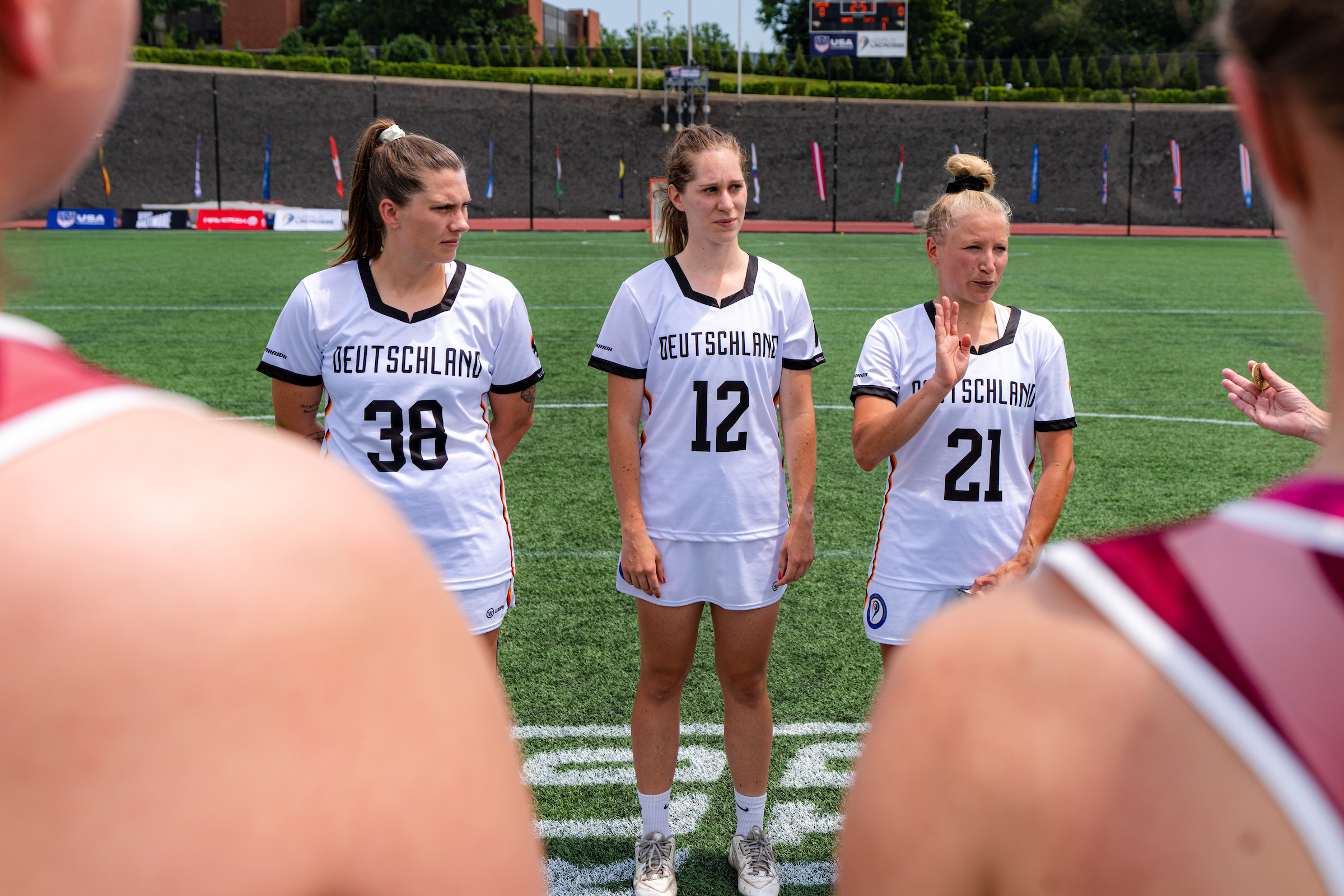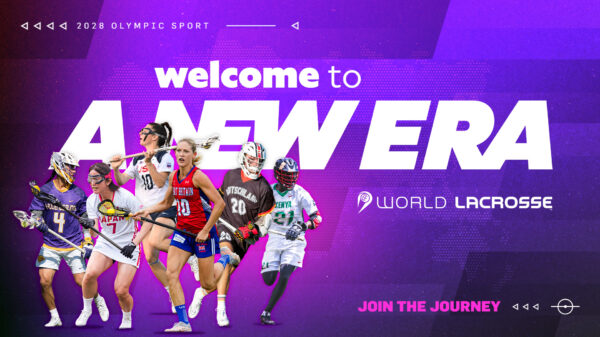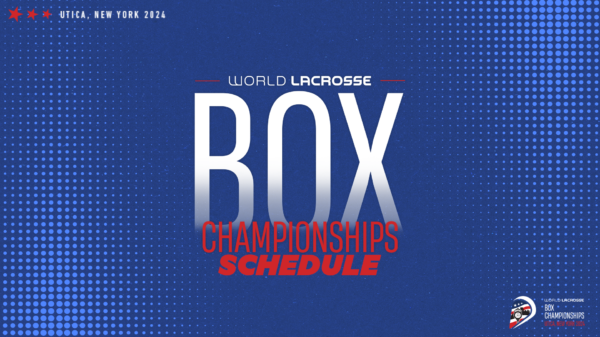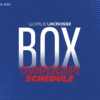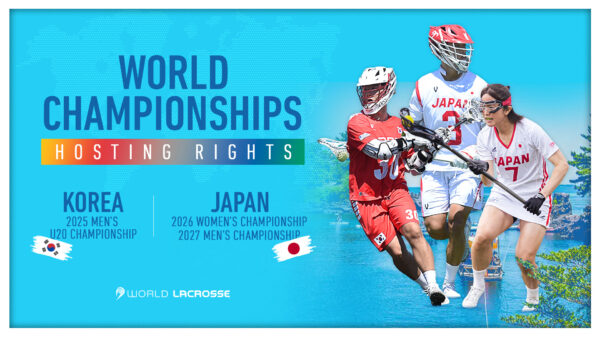The German Lacrosse Association undertook a significant reformation in 2020 to morph its management structure and adjust the representation for key parties in its community.
One of the biggest changes was the creation of multiple commissions, one for regional associations, one for referees and one for active athletes. The Athletes’ Commission has helped to give players a voice in decision-making and allowed administrators to stay connected to the athlete base.
Germany has established itself as a significant force in the international lacrosse landscape since its inception in 1998, which came five years after the first lacrosse clubs in the country. The men’s team has finished in the top 10 in all six of its world championship appearances, while the women’s team has placed in the top 15 in its six appearances.
The rapid growth into a perennially competitive program is due in part to Germany’s strong infrastructure, in lacrosse and in sport. Germany boasted a U16 league by 2005 and had 50 member associations across the country by 2009.
Currently, Germany has men’s and women’s field lacrosse leagues split across four regions that send their top teams every year to a national championship, as well as men’s and women’s box leagues and a regional sixes league. The robust domestic system supports five national teams that compete in European and World Lacrosse events.
With such a diverse player pool in terms of discipline and geography, the creation of an Athletes’ Commission was an easy decision to keep lacrosse as one of the most forward-thinking sports in Germany.
“We represent athletes and give them a voice in front of the management board,” said Lena Stede, the representative on the commission for the women’s national team. “We push for our needs to be met. It’s not just hearing about changes, but being a part of it.”
Jakob Großehagenbrock, vice president of Germany Lacrosse, agreed.
“The athletes commission is a great sounding board for us – both, in strategic questions and operational details. It is also a key instrument for us to keep athletes involved in decision making.”
The commission started in June 2020 with entirely virtual meetings and consisted of nine representatives from the men’s and women’s field and box leagues and the five national teams. They set out quickly, agreeing on rules, voting and general organizational principles during the pandemic.
The commission was then able to conduct surveys of the player base and start implementing changes. One challenge the commission identified was the talent gap between teams at the top and bottom of the regional leagues. The commission passed the creation of a national league cup competition at the 2021 German Lacrosse Assembly, to be implemented next season.
“This format will help our teams at all levels,” said Dominik Nitsch, the commission’s representative for the men’s national team. “Teams will get more games and higher-level games against new opposition, and this will facilitate more growth domestically.”
Another successful example of the commission in action is the conduction of post-event surveys from the summer of 2022, when German athletes participated in four competitions: the European Box Lacrosse Championship, World Lacrosse Men’s U21 Championship, The World Games and the World Lacrosse Women’s Championship.
With athletes having to pay for trips themselves, one cost-efficient measure the commission settled on was to allow men’s athletes to use their own helmets that matched their uniform colors instead of having to buy new ones for every tournament.
“It was important for our athletes to air out their concerns after an intense summer,” said Nitsch. “We can also exchange ideas and experiences between our different teams and leagues now, and we are already putting recommendations into practice ahead of the 2023 World Lacrosse Men’s Championship in] San Diego.”
Another key responsibility of the commission is its input on national team staff positions in collaboration with Germany Lacrosse’s board.
“It’s super important for us to influence who can be a part of these coaching and director roles,” said Stede. “We are heard, and that is a huge difference to how Germany Lacrosse was five years ago.”
“Our Athletes’ Commission has a vote on policies and bylaws and even a veto power for appointed directors,” added Großehagenbrock. “With this unique approach, we can ensure that the athlete’s interests are accurately represented. We hope that this model can serve as an example for other National Governing Bodies to include their athletes in their continuous growth.”
Tessa Helf, a member of the German Women’s National Team, was elected to the World Lacrosse Athletes’ Commission in June 2022, and is hoping to use her experience to influence similar positive change as she has experienced in Germany for the worldwide lacrosse community.
As Germany evolves more than 20 years into its lifecycle as a federation, one of its key challenges is finding ways to transition players into roles that can continue the grow the game.
Nitsch, Stede and Großehagenbrock all agreed that another role the Athletes’ Commission serves is as a springboard for players to continue into leadership roles in lacrosse after their playing careers end.
“We have had 10-plus successful years in German lacrosse,” said Nitsch. “We need to translate some of that to help the next generation, whether it is coaching, managing, refereeing or governance. At the end of the day, our community thrives on retention.”
